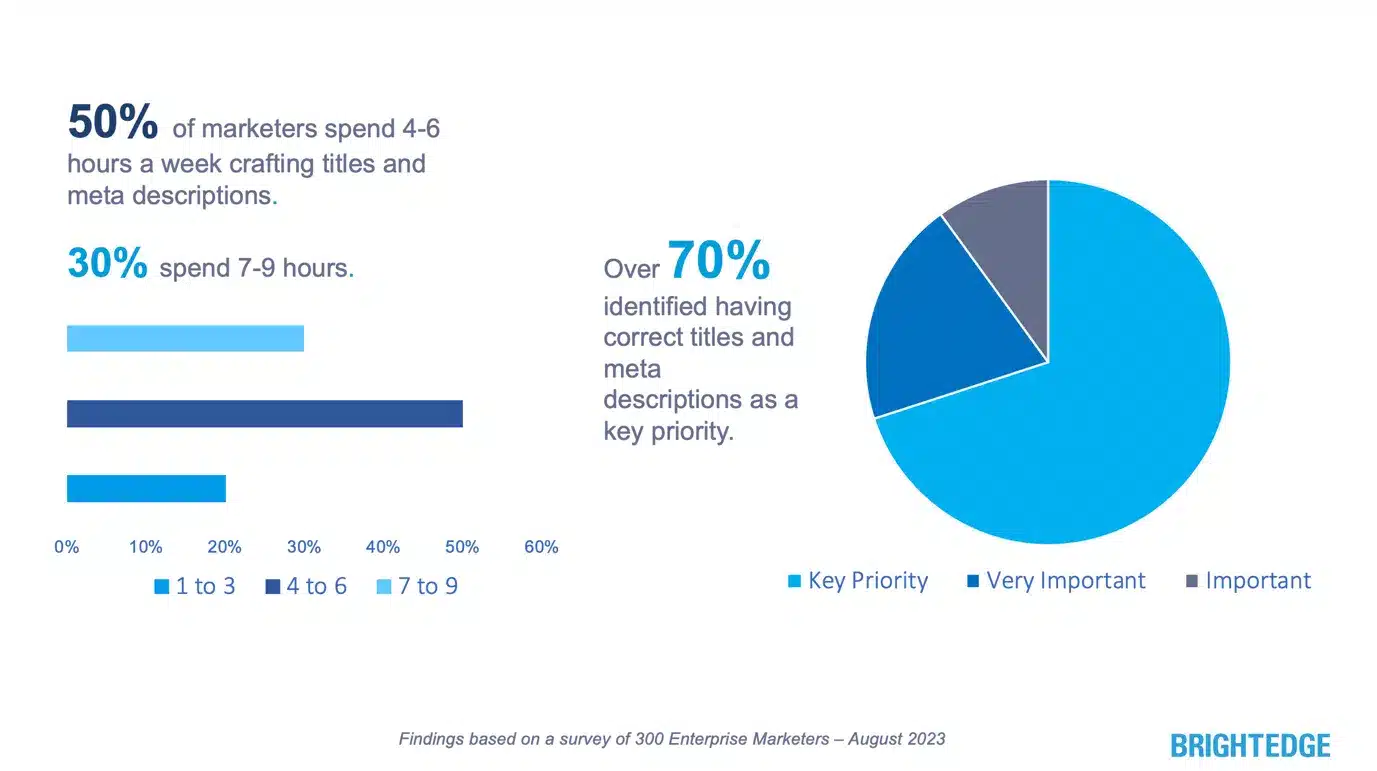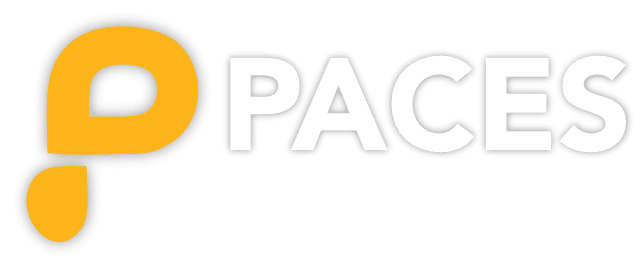When it comes to optimising your website for search engines, title tags and meta descriptions are fundamental elements that can significantly influence your ranking.
Recent research from the enterprise SEO platform BrightEdge has shed light on just how crucial these elements are in the SEO landscape. In this article, we’ll explore the findings and delve into the importance of using keywords in title tags for better Google rankings.
The Significance of Keywords in Title Tags:
BrightEdge’s research revealed a compelling statistic: Title tags that include keywords rank in the top 5 positions of Google an impressive 85% of the time. While this percentage may not come as a surprise to seasoned SEO professionals, it serves as a reminder of the enduring importance of these on-page SEO elements.
Why Does This Matter?
It’s essential to periodically revisit SEO fundamentals like title tags and meta descriptions to ensure your website’s ranking potential is fully optimized. Analysing your data for keyword usage (or the lack thereof) can provide valuable insights into your site’s performance in search results. While it is possible to rank for a keyword without explicitly using it on your page, this occurrence is relatively rare.
Key Takeaways from the Research:
BrightEdge’s research uncovered several key takeaways:
- Meta Descriptions Matter: An overwhelming 95% of pages ranking in the top 10 search results had meta descriptions. This highlights the significance of crafting compelling meta descriptions to entice users and improve click-through rates.
- Capitalisation Consistency: Approximately 90% of top-ranked pages consistently use capitalisation in their titles and meta descriptions. This includes capitalising brand and product names, showing that attention to detail in formatting can impact rankings.
- Grammar Matters Less: While 25% of pages lower in search results contained grammar errors in their titles and meta descriptions, it’s worth noting that Google does not consider grammar as a direct ranking signal, as confirmed by Google in 2017.
In an unexpected twist, BrightEdge’s survey found unanimous agreement among enterprise marketers. A staggering 100% of respondents emphasised the significance of having accurate title tags and meta descriptions. None selected “neutral” or considered it “not a major priority.”
Investment of Time:
Creating effective title tags and meta descriptions remains a substantial time investment for enterprise marketers. The survey revealed that:
- 50% of marketers invest 4-6 hours weekly in this task.
- 30% dedicate 7-9 hours each week.
- 20% allocate 1-3 hours weekly to this critical aspect of SEO.

Research Methodology:
This research combines an analysis of 10,000 keywords spanning various major verticals, including finance, retail, travel, and insurance. Additionally, a survey of 300 enterprise marketers was conducted to gather insights. Both aspects of the research were conducted within the current month.
The Bottom Line: Correlation vs. Causation:
It’s important to remember that while the correlation between keywords in title tags and high Google rankings is evident, keywords are just one of many ranking signals. Whether keywords are the primary reason for a webpage’s top position in Google’s results remains a nuanced question.
Conclusion
BrightEdge’s research underscores the enduring importance of keywords in title tags and meta descriptions for SEO success. While they are not the sole determinants of ranking, they play a significant role in helping your website climb the search engine ladder. It’s a reminder that even in the ever-evolving world of SEO, certain fundamentals remain steadfast and reliable.
